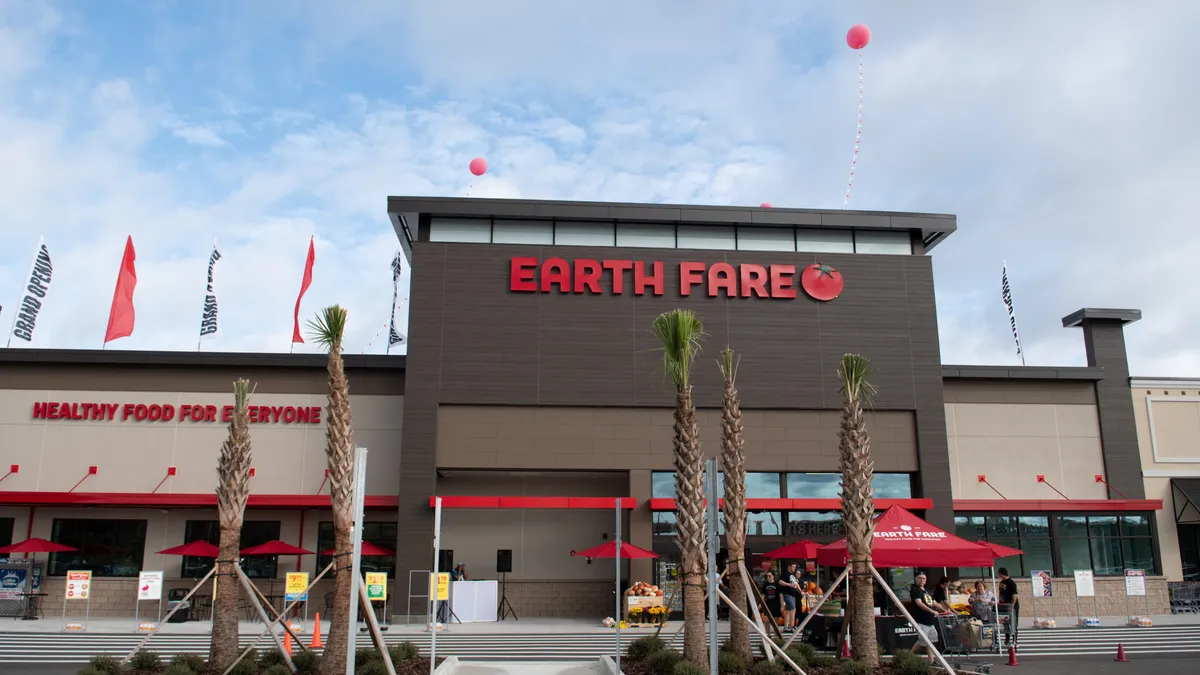Dive Brief:
- Organic grocer Earth Fare opened its first Charlotte, North Carolina, store last week, the company’s director of grocery announced on LinkedIn. The store is the 13th location the supermarket chain has opened across six states since late June.
- The store, which spans 25,000 square feet, opened without significant fanfare or prior announcement, which Earth Fare’s director of marketing told the Charlotte Observer was a decision to avoid crowds due to the risks of COVID-19.
- The Charlotte location originally opened in 2007, but shut its doors along with about 50 other Earth Fare outlets when the company filed for bankruptcy in February this year, according to the Charlotte Observer. Now, the grocer is looking to reopen four additional stores to cater to the Charlotte market, the paper reported.
Dive Insight:
After an investment group led by Hulsing Enterprises bought assets of the bankrupt Earth Fare this year, the Asheville, North Carolina-based grocer has been slowly reopening its doors. Experts who spoke to Grocery Dive earlier this year attributed the company’s accumulation of debt and eventual bankruptcy filing to a flawed expansion plan.
The grocer, which specializes in natural and organic foods, had a plan for growth based on offering lower prices than competitor Whole Foods and keeping their operating costs lower. Earth Fare's rapid expansion, however, meant its local appeal eroded at the same time as competing chains such as Sprouts Farmers Market and Wegmans rose, experts said. Its store growth outpaced the grocer’s ability to differentiate in crowded markets.
As Grocery Dive reported in January, the Charlotte area has seen an uptick in new grocery brands, including Aldi, Lidl, Wegmans and the Amazon Fresh delivery service, as well as several additional Earth Fare outlets now in the works. Mark Thompson, who tracks grocery real estate, estimated that the developments are outstripping the region’s needs, given the state's current population size.
Whether Hulsing Enterprises will avoid repeating history remains a question, but restarting the grocer’s expansion from scratch may provide the opportunity for a slower, more sustainable plan for growth. The grocer’s new investors have also made public indications that they will refresh the supermarket’s design at a new store in Virginia to open early next year, while keeping intact the popular elements of natural meats and products and a "healthy lifestyle chef."
Specialty organic brands have struggled this year, with both Lucky’s Market and Fairway Market filing for bankruptcy in 2020. Last month, Midwest-focused Fresh Thyme Market closed its last three stores in Nebraska as it struggled to differentiate itself from large-scale retailers such as Kroger, Albertsons and Walmart — a common pitfall for specialty brands.












